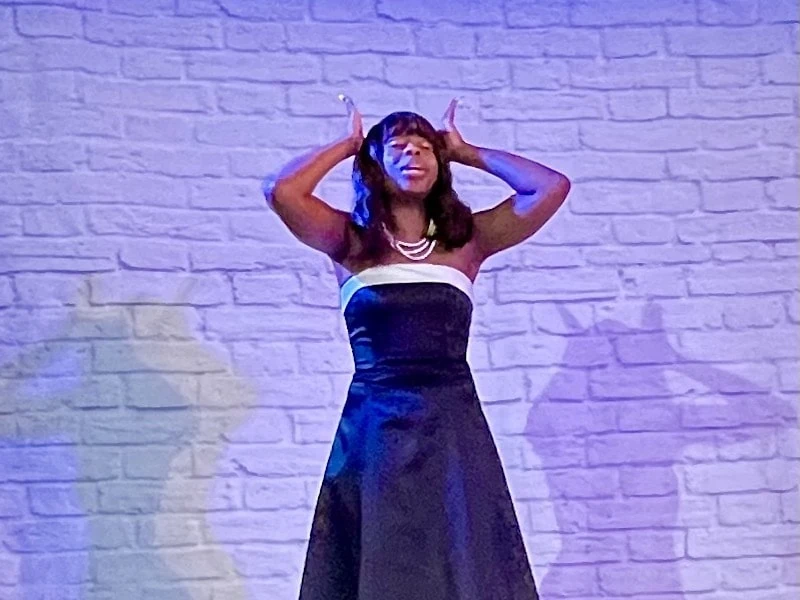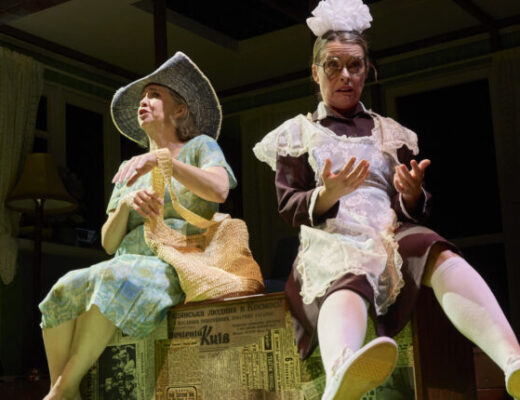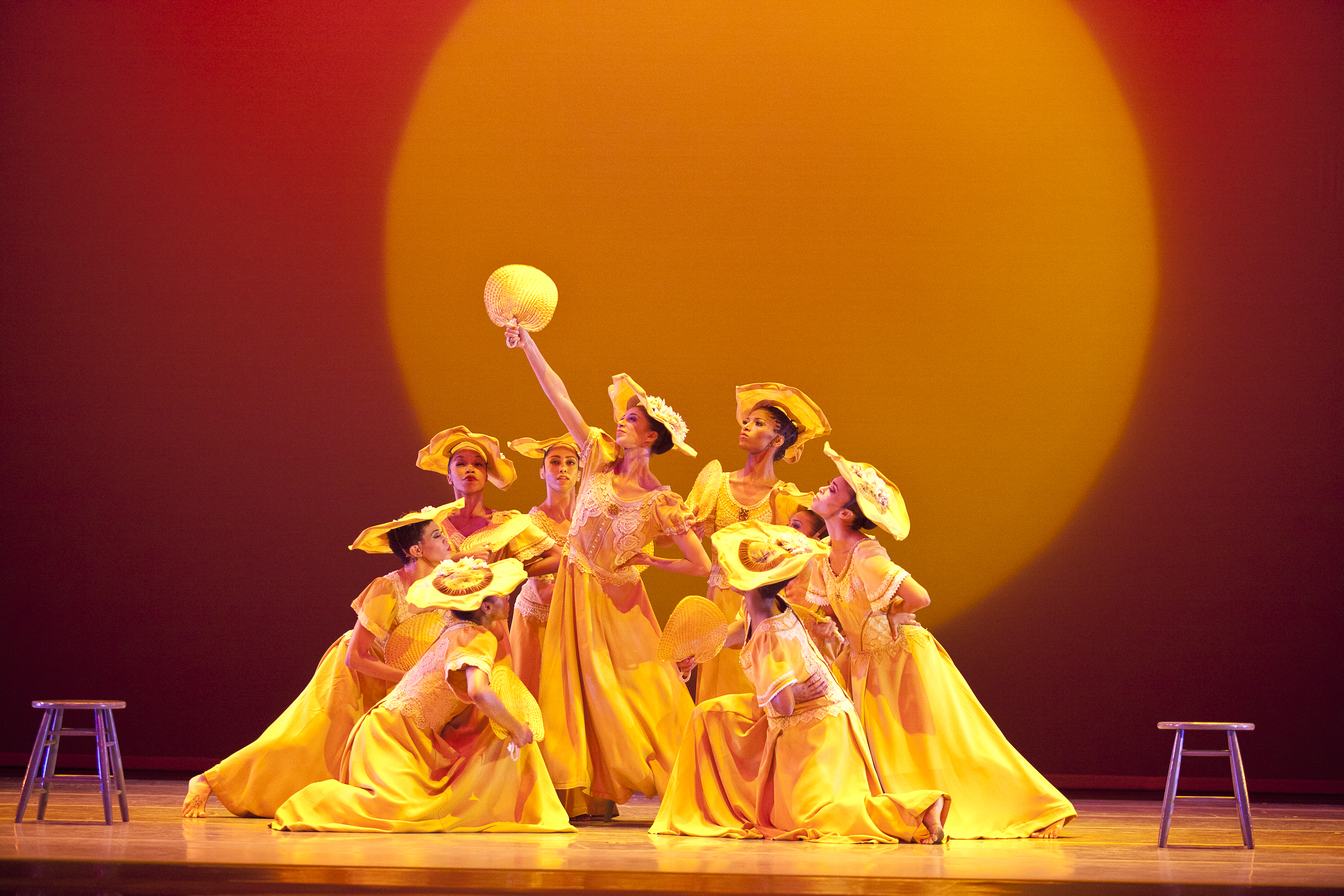By Jakob Cansler
This article was originally published in DC Theater Arts here.
Before any words are spoken in The Oreo Complex, the directions are clear. In bold letters, repeated a hundred times on the background of the stage, are three words: FOLLOW THE RULES.
What are the rules? There are a dozen or so of them, appearing in the intro portion of the show. “Imitation is the sincerest form of flattery” is there, as is “Don’t call anyone racist” and “Talk about race, but not too much” and “Hand out lots of treats” and — I couldn’t remember them all, to be honest. I am, admittedly, not expected to remember them.
Lillian Brown, the writer, director, and sole performer of Oreo Complex, is expected to remember them. She is expected to follow them, too — all of them, at all times. Doing so is like a never-ending balancing act. In Oreo Complex, now performing at Nu Sass Productions through June 2, Brown expertly reveals the toll that such a balancing act has on her.
Oreo Complex explores the experience of being Black, both generally and specifically within white institutions, and is inspired by W.E.B. DuBois’ concept of double consciousness. The show is split, essentially, into three parts, with monologues serving as bookends and a dance sequence and rendition of “Lift Every Voice and Sing” in the middle.
Brown begins, after the rules are laid out, with the definition of “oreo,” a derogatory term meant to describe a Black person perceived by others as “acting white.” From there, Brown launches into a stream-of-consciousness monologue that explores various aspects of identity and race in a short amount of time, both by directly speaking about her own experiences and understanding of Blackness and by revealing through her emotions the way that those identities affect her.
“Monologue” may actually not be quite the right word to use here. Sure, the lines flow conversationally, but there is something poetic about the way Brown speaks. The lines come fast and sometimes frantically, but there is a rhythm to the sentences, a mellifluousness that is captivating from the minute Brown defines “oreo.”
To be sure, “oreo” is not a self-description, for Brown or anyone. It is an identity placed on Brown by others. In fact, most of the various identities Brown explores in the first section of Oreo Complex are externally designated. Brown talks frankly about not feeling Black enough for the Black community while simultaneously not being considered Black by white people while simultaneously being defined by her Blackness by white people. It is telling that for much of the first section of Oreo Complex, Brown often uses the royal “you,” like even her own experiences exist outside of her.
Much like following “the rules,” there is a balancing act to oscillating between all these identities. The frantic, stream-of-consciousness nature of this monologue derives from all the thoughts and emotions that pour out amid trying to reckon all of these identities. Her words are honest, sometimes even blunt, but they are also purposefully scattered, sometimes even contradictory.
When the dance and music come in the middle of Oreo Complex, then, they serve as an interlude of sorts. For the audience, it is a chance to digest. For Brown, it is a chance to collect — collect her thoughts, her emotions, her wording, her identity.
As a result, the second monologue in Oreo Complex is not the outpouring that the first one is. It is less stream-of-consciousness and more statement-of-purpose. There is still plenty of emotion in Brown’s words and performance, of course, but it is not the emotion that bleeds through the cracks of externally designated identities. This emotion is knowingly deployed from within.
It is also notable that for this second monologue, unlike the first, Brown sits on the floor the entire time. If the first monologue is an expression of the balancing act of being Black within a white institution, it is one that is both transfixing and hard to watch. After all, the captivation of a tightrope walk comes from the fear that at any second, the walker may fall. For Brown and for us, there is fear she may lose everything if she breaks one of the rules.In the end of Oreo Complex, though, Brown does not fall. She does not reach the end of the tightrope. She does not break any of the rules. She simply decides the balancing act is over.





No Comments